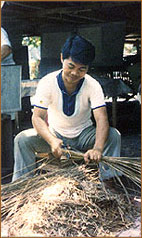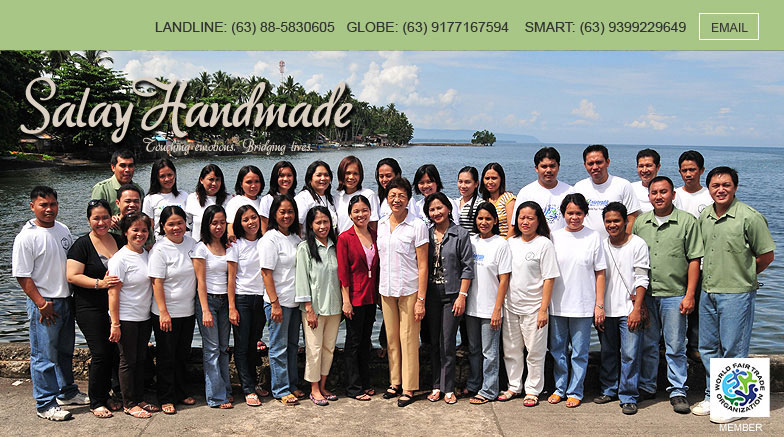Salayhandmade
by Loreta C. Rafisura
Salay Handmade Products Industries, Incorporated (Salayhandmade) is a producer and exporter of quality handmade paper and its converted items. The company that I co-founded with my  husband, Dr. Reynaldo G. Rafisura, is located in the quaint coastal town of Salay, Misamis Oriental, Philippines, where I was born. Our activities began in 1987 as a civic organization known as the People's Economic Council (PEC). All we wanted to do was help provide livelihood opportunities for our economically disadvantaged community so we could all live honorably.
husband, Dr. Reynaldo G. Rafisura, is located in the quaint coastal town of Salay, Misamis Oriental, Philippines, where I was born. Our activities began in 1987 as a civic organization known as the People's Economic Council (PEC). All we wanted to do was help provide livelihood opportunities for our economically disadvantaged community so we could all live honorably.
Our group was initially composed of only 10 civic-minded locals who had no formal education in either art or production; but we were all willing to innovate and survive using our talents and what resources we had. Most of all, we trusted that through God’s help we would succeed with our battle cry: Yes, the Filipino Can!
We ventured into small export activities in 1990, and since then we have been anchored in Fair Trade principles as spelled out by the World Fair Trade Organization (then known as International Federation of Alternative Trade), which we subsequently joined in 2003.
By practicing the standards of Fair Trade, especially the protection of our environment which I have upheld so dearly for love of Mother Nature, we have somehow found a niche in our ever-growing green-conscious society.
 Today, almost quite naturally, after continuous research and training in design and paper processing, Salayhandmade is contributing significantly to the development of Salay and the Philippines, and has become a source of inspiration to other entrepreneurs.
Today, almost quite naturally, after continuous research and training in design and paper processing, Salayhandmade is contributing significantly to the development of Salay and the Philippines, and has become a source of inspiration to other entrepreneurs.
Through the art of handmade papermaking, pressed-flower designing, and its related activities, we continue to meet our nationalistic aim of a holistic development for our people.
Finally, Salayhandmade provides support to our social arm, the SHAPII Foundation, whose main activity is providing scholarships to bright children from economically challenged families of the community. To me, without this, doing business comes close to being meaningless.

![]()
![]()